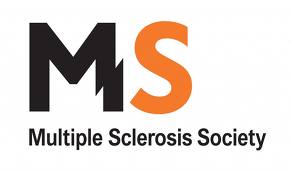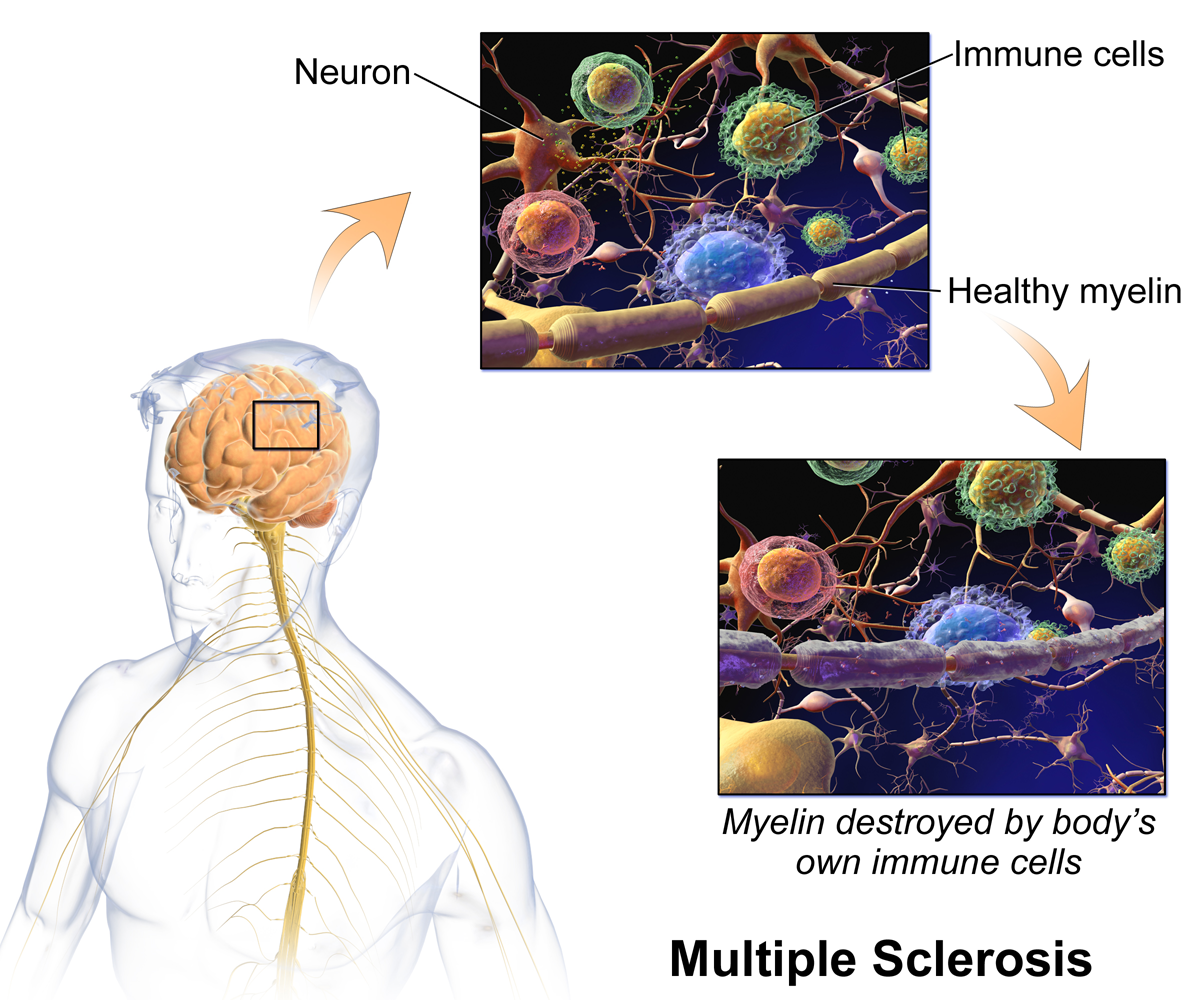What Are The Different Types of Multiple Sclerosis?

What is Multiple Sclerosis
Multiple Sclerosis (shortened to M.S) is a neurological disease that affects at least 1 in every 1000 people. It does not matter your race, gender, nor lifestyle it can happen to anyone if your immune system deems it a necessary set of actions.
M.S is caused by the body attacking the covers (myelin) of the nerves thereby preventing the signals from moving smoothly through the central nervous system (CNS) to their final destination. These exposed nerves are then repaired by the body but the scar tissue (sclerosis) that forms around them do not work as well as the original myelin cover. The scar tissue is also still vulnerable to the body's attacks and over a period of time the damage will get worse, hence the name of multiple sclerosis. For a visual animation see the video just below.
The disease causes many symptoms from blindness, incontinence to losing control of limbs. The disease takes a different progression in each person, however, it has been agreed that there are four main times of progression: Relapsing Remitting M.S, Secondary Progressive M.S, Primary Progressive M.S and Benign M.S. If you are effected (or know someone who is) you may find that you experience more than one progression line during your life; it is a very complex and difficult disease to comprehend.

Multiple Sclerosis Animation
Multiple Sclerosis Rates
Are you affected by M.S?
Types of M.S
Relapsing Remitting M.S
This is the most common form of M.S, patients will have times when symptoms flare up (known as a relapse) followed by periods of recovery (a remission).
Typically patients will have a flare-up attack once or twice a year that can last anywhere from 24 hours to months at a time. However, over time the symptoms get worse and relapses tend to last for longer periods of time. Over time it may become difficult to predict the patterns of relapse and remission as the symptoms get worse even during a remission period.

Secondary Progressive M.S
About half of M.S patients diagnosed with Relapsing Remitting M.S will go on to develop Secondary Progressive M.S. The difference is that with Secondary Progressive M.S after about 10 years the relapse episode will stop and the symptoms will just steadily get worse instead of flaring-up from time to time. Of course, the timescale in each person is different and is often difficult to track due to each individual's circumstances.

Primary Progressive M.S
Also know as Chronic Progressive M.S, this type is a steady worsening of symptoms over time with rarely any flares of symptoms. The curve of progressive disability is again different in everyone. Some people might have a gentle curve whereas others may have a sharp increase or even a plateau at times.
About 10% of M.S patients are diagnosed with this type.

Benign M.S
This is a very difficult form to diagnose and is present in 15-20% of M.S patients. A diagnosis is normally formed after approximately 10 years from looking at the collected data - this is where good doctors and scrupulous data handling are needed as it makes everything easier on the patient in the long-term. The difficulty is due to infrequent mild attacks followed by long periods of remission. As time goes by it may be decided that the patient has the Relapsing Remitting M.S depending on the data collected.
Benign M.S is the only type that will only have a small impact (although this may not seem the case to the patient) on the patient, and their family's, lifestyle. Since the attacks are mild and infrequent that can lead a decent life in comparison to the other types of M.S. Although this is the case any type of M.S can be devastating to those affected by it.

Foods That Are Great For Multiple Sclerosis
As you now know M.S is caused by the body stripping down the myelin sheath that protects the nerves which then causes a whole host of symptoms and problems because the body then starts to misfire or not get the signal it needs to do something properly. As more and more research goes into finding a cure for M.S we find some great discoveries among our daily food supplies. Research has shown that there are foods that can help the body protect the existing myelin sheaths and maybe start to reform the ones that have been damaged.
Myelin is essential a special type of fat that covers the nerves and in order to make that crucial fat called sphingolipids. The body makes this fat through a synthesis process that involves vitamin K which is found in the following foods:
- Spinach
- Kale
- Broccoli
- Brussels sprouts
- Herbs
- Asparagus
- Cabbage
Basically it's your dark green leafy vegetables that do the job. Just be aware that if you are on Warfarin (coumadin) or other blood thinners you'll want to avoid high doses of vitamin K because they will affect your medication.
Further Resources of M.S
Treating M.S
So far research has not discovered a cure or permanent treatment for M.S so quite often patients will be on a cocktail of drugs. However, there are certain combinations of drugs that have proven to work really well when they are combined with certain lifestyle changes.
The two books to the right will provide patients with handy pieces of information that they can then take to their own doctors to discuss plus they also act as reference books for when you need a quick answer but your doctor isn't available. One of the best tools in treating any condition is knowledge so the more you read and increase understanding and working knowledge the better you can manage your symptoms, or even work towards a long-term or permanent remission as discussed in the first book.
Further Reading
- MS Info, Research, News and Support | Multiple Sclerosis Society UK
- MS Trust | Multiple Sclerosis Trust
The MS Trust is a UK charity, providing information for anyone affected by multiple sclerosis (MS) including MS symptoms, treatments and living with MS, education programmes for health professionals, funding for practical research and campaigning for
Promote Multiple Sclerosis Awareness
Help promote multiple sclerosis by showing off your M.S t-shirt or hand out some badges.
© 2012 Bobby









